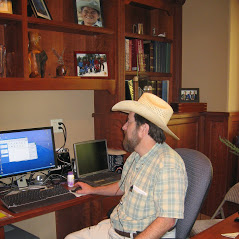Why Clean Your Computer?
Many programs, including the operating system, save temporary files on your hard drive. Unfortunately, these temporary files get left behind long after they were actually needed. When you add up all these files you may be looking at hundreds of megabytes or even gigabytes worth of files that take up space and slow your machine down. Windows provides a drive cleaner tool, and there are others. While I reccomended CCleaner in the past, I can no longer do so. Their recent actions regarding active monitoring and collecting telemetry data make it impossible for me to recommend them anymore. Whatever you use, be careful of registry cleaners (they usually do more harm than good). If you suspect that your computer is infected, or if it is behaving strangely do not use a drive cleaner--you may erase data that can help diagnose your problem, like log files.
I often get asked what is the difference between running a drive cleaner and using a drive defragmenter. A drive cleaner removes temporary files that you don't need--like throwing away the junk mail and old notes from your desk. A drive defragmenter pulls together the pieces of a file so they are together--like putting the papers that you need back in the folder in the right place in the filing cabinet. This makes it faster and easier to find the files the next time you need them.
If you've read this far and you were expecting something completely different--yes, you are correct. Dust is the enemy of electronics. If your fans and air intakes are blocked or your motherboard is covered with a "blanket," your computer will overheat and its life will be shortened.
Physical cleaning is important, but be careful! Static electricity is dangerous to electronics.

